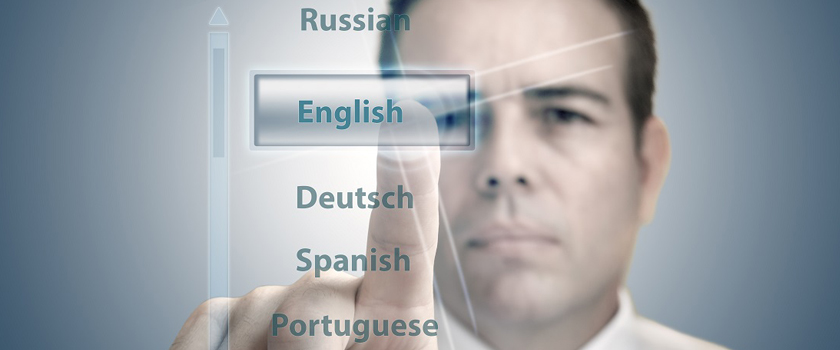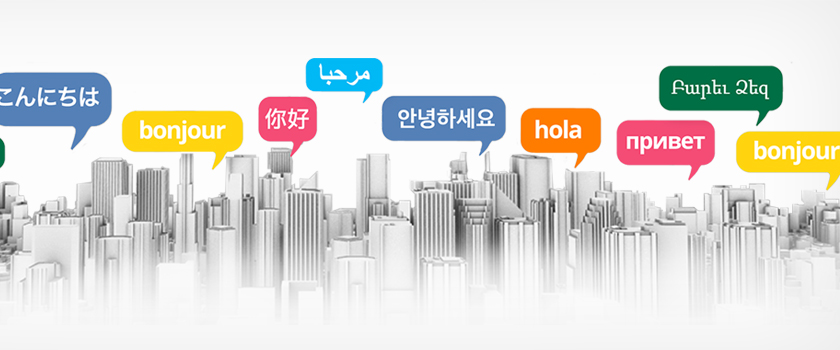2025 Offer Request a Quote Today and Grab a $50 Coupon for Free!
Technical education is crucial today as it empowers individuals with the skills and knowledge required to excel in their careers. It focuses on the practical aspects of a specific field, such as engineering, technology, and science. Moreover, the increased demand for skilled technical translation experts in various industries fuels the growth of the technical education sector.
The history of technical education dates back to the Industrial Revolution, when technical education was provided to individuals to meet the growing demand for skilled workers in factories. The primary objective of technical education at that time was to equip individuals with the practical skills needed to operate and maintain machinery.
Over time, technical education has evolved to meet the changing needs of the job market. It now includes various fields such as computer science, engineering, biotechnology, etc. Technical education has become an essential component of the education system worldwide as it provides individuals with the necessary skills to succeed today.
Technical education is crucial for individuals seeking to build a successful career. Here are five examples of the importance of technical education in the modern world:
Career advancement: Technical education equips individuals with the skills and knowledge needed to advance their careers in their chosen fields.
Innovation: Technical education encourages innovation by providing individuals with the tools and knowledge to develop new products, services, and technologies.
Economic growth: Technical education is significant in driving economic growth as skilled professionals are in high demand across various industries.
Problem-solving: Technical education teaches individuals to identify and solve complex problems in their field of expertise.
Industry relevance: Technical education ensures that individuals have the most up-to-date knowledge and skills relevant to their industry.
The advent of technical translation refers to the emergence of a specialized field that deals with translating technical and scientific documents. With the advancement of technology, the demand for technical translations has increased significantly in recent years. Technical translation requires specialized knowledge of the subject matter, technical terminology, and the ability to convey complex information accurately.
The development of technical translation is closely tied to the growth of industries such as engineering, medicine, and information technology. The need for accurate and precise technical translations increased as these industries became more globalized.
One of the significant challenges of technical translation is the use of technical jargon and specialized terminology. A technical translator must thoroughly understand the technical terminology used in the source text and the target language. They must be familiar with the scientific or technological concepts and principles, as well as the cultural and linguistic differences that may affect the accuracy of the translation.
The advent of technical translation has led to the development of specialized tools and technologies to aid every technical translation agency. These tools include computer-assisted translation (CAT) software, terminology databases, and machine translation systems. CAT software has revolutionized the translation industry by making the translation process faster and more efficient. CAT tools allow the translator to store and manage previously translated material, enabling them to reuse translations and maintain consistency in their work.
The scope of technical translation is quite broad and encompasses the translation of various technical documents and materials. Technical translation refers to texts containing specialized and complex terminology, such as user manuals, technical reports, patents, product specifications, engineering documents, scientific research papers, and software documentation.
Technical translation requires specialized knowledge and understanding of the subject matter being translated. A technical translator needs expertise in the relevant field and a deep understanding of the terminology and jargon specific to that field. This is because technical texts often contain complex technical concepts and terminologies that require a knowledge of the specialized language and technical terminology.
Some of the main areas that technical translation covers are engineering, science, information technology, and medical fields. Technical translation also covers subfields such as aerospace, automotive, electronics, energy, telecommunications, etc.
The scope of technical translation also extends to different mediums, such as audio and video materials, technical drawings, and diagrams. Technical translators must understand the other formats used in technical documents, such as CAD drawings, blueprints, and charts.
Technical translation is a field rapidly changing the landscape of technical education. With technological advancements and the globalization of business, there is an increasing demand for technical translation services to help bridge language barriers between companies and industries worldwide.
Technical translation involves translating technical documents, such as user manuals, technical reports, and instruction manuals. These documents often contain highly technical and specialized terminology that requires an in-depth understanding of the subject matter. As such, technical translators are often highly skilled and specialized professionals with expertise in a particular field.
The use of technical translation in technical education has numerous benefits. It helps students access information previously unavailable to them due to language barriers. This, in turn, increases the quality and relevance of the education they receive, making them better prepared for the global workforce.
In addition to increasing access to information, technical translation plays a vital role in international collaboration and knowledge sharing. By breaking down language barriers, technical translation facilitates collaboration between experts in different countries, allowing them to work together to solve complex problems and develop innovative solutions.
Furthermore, technical translation is also essential in ensuring safety and compliance in industries such as engineering and manufacturing. Technical documents, such as safety manuals and compliance reports, must be accurately translated to ensure workers understand the risks involved and can take appropriate safety measures.
Develop Your Language Skills: To become a technical translator, you need to be fluent in at least two languages. In addition to being fluent in your native language, you should have a good understanding of the technical language of the language you want to translate into. Take language classes to improve your skills, or immerse yourself in the language by traveling to a country where it is spoken.
Learn Technical Terminology: Technical translations involve highly specialized terminology that is specific to a particular industry or field. You will need to become familiar with the technical language of the industry you want to translate for. For example, if you want to translate technical documents for the engineering industry, you need to understand technical terms such as “mechanical engineering”, “fluid dynamics”, “materials science”, etc. Taking aid from Technical Documents translation services is also helpful.
Understand the Subject Matter: You need to have a good understanding of the subject matter you are translating. This means that you should have a good understanding of the technical aspects of the content you are translating. You can gain this knowledge by taking classes in the subject matter or by researching the topic online.
Acquire Technical Translation Tools: You will need to acquire software tools that help with technical translation. These tools include Translation Memory (TM) software, which helps to store and manage previously translated content. You will also need to get software that assists with terminology management, so that you can keep track of the technical terms specific to the industry you are translating for.
Gain Professional Experience: To become a successful technical translator, you need to gain professional experience in the field. This can be done by working on translations for a variety of clients. You can start by doing freelance work for small businesses or by offering your services to translation agencies.
Stay Up-to-date: The world of technology is constantly changing, so you need to stay up-to-date with the latest developments in the industry you are translating for. You can do this by attending industry events and conferences, reading technical journals, and networking with other professionals in the industry.
Get Certified: Finally, you can get certified as a technical translator. This certification will show potential clients that you have the necessary skills and knowledge to translate technical content accurately. There are several organizations that offer certification, including the American Translators Association (ATA) and the International Association of Professional Translators and Interpreters (IAPTI).
Technical translation is critical to many industries, such as engineering, IT, automotive, medical, and scientific research. Technical documents contain highly specialized terminology and concepts that require a deep understanding of the subject matter.
Accuracy: Technical translation requires precision and accuracy to ensure the translated document conveys the same meaning as the source text. Technical translations must be reliable and trustworthy, as any translation error could lead to misunderstandings, errors, or accidents.
Quality: Technical translation requires specialized knowledge, vocabulary, and experience. A professional technical translator is trained to understand the nuances of technical language and can provide accurate and high-quality translations.
Speed: Technical translation projects are time-sensitive and require a quick turnaround. A professional translator with technical expertise can work efficiently to deliver translations promptly.
Compliance: Technical translation projects require compliance with industry standards, regulations, and legal requirements. A professional translator with technical expertise can ensure compliance with all relevant standards and regulations.
Cost-effectiveness: Technical translation is a complex and time-consuming process. Hiring a professional translator with technical expertise is a cost-effective solution, as they can provide high-quality translations without requiring costly revisions.
Encourage Language Training: To promote technical translation, language training must be encouraged. Training can be offered for both source and target languages. The courses can be tailored to address the specific needs of technical translators, including language proficiency, grammar, and vocabulary.
Develop a Technical Terminology Database: Technical translators need access to a comprehensive and accurate technical terminology database. The database must be regularly updated with new terminologies to help translators stay up-to-date with the latest trends.
Collaboration with Technical Experts: Collaboration with technical experts can help translators understand complex technical concepts and terminologies. Technical experts can guide translators to create accurate and precise translations.
Implement Quality Control Measures: Quality control measures can help ensure the translations are accurate, consistent, and error-free. Quality control measures can include editing, proofreading, and review by subject matter experts.
Utilize Translation Technology: Translation technology such as translation memory tools and machine translation can significantly improve the efficiency and accuracy of technical translations. These tools can help translators work faster and reduce errors.
Engage Professional Technical Translators: Engaging professional technical translators with a solid understanding of technology terminologies and processes is crucial for quality translation. Professional translators also have the necessary experience to handle technical content accurately and precisely.
Foster Industry Collaboration: Collaborating with industry organizations and associations can help promote technical translation by providing access to resources, training, and networking opportunities. This collaboration can also help develop industry standards and best practices.
The future of technical translation looks promising with the advent of Artificial Intelligence (AI) and machine learning. AI and machine learning are transforming the translation industry, and technical translation is no exception. AI-powered translation tools can process large volumes of text quickly and accurately, reducing the turnaround time for translations.
Machine learning algorithms are also improving the quality of translations by learning from previous translations, recognizing patterns, and improving accuracy. However, it's worth noting that machine translation tools could be better and may not always capture the nuances of technical language accurately.
In conclusion, technical education is crucial in today's fast-paced and constantly evolving world. Technical translation is critical in ensuring that technical information is accurately translated to serve a global audience. Specialized translation agencies are changing the technological education landscape by providing high-quality and accurate translations. To promote technical translation, it's essential to invest in training programs, encourage the use of translation agencies, establish industry standards and develop machine translation tools. The future of technical translation looks bright with the advent of AI and machine learning, and we can expect to see more advancements in the translation industry in the coming years.

On the Labour Day Holiday, 147,000,000 Plus Chinese people choose to travel around the country. Labour Day is one of the
Read more
There are 196 countries in the world in which 25 of them are very rich which shows that they are
Read more
dwg: It means a drawing file save format created by AutoCAD, and now has been the standard format of 2D
Read more
To sum up the publicity stance, sometimes the marketing campaigns do not have their envisioned result. When publishing the brand ads
Read more
The state of Assam is the king producer of tea in India; Dibrugarh is the hub of tea gardens in
Read more
Digital signage is the form of electronic display that shows information, advertising and other messages. Digital signage such as LCD,
Read more
Did you know that Malay’s official name is Bahasa Malaysia? Did you know that it is basically a parent language
Read more
Portuguese is the language that far too often gets ignored. But the truth is Portuguese is one of the world’s
Read more
For the past 5-6 years, Translation Services have seen a great boom in business. Although, large corporate firms have been
Read more

